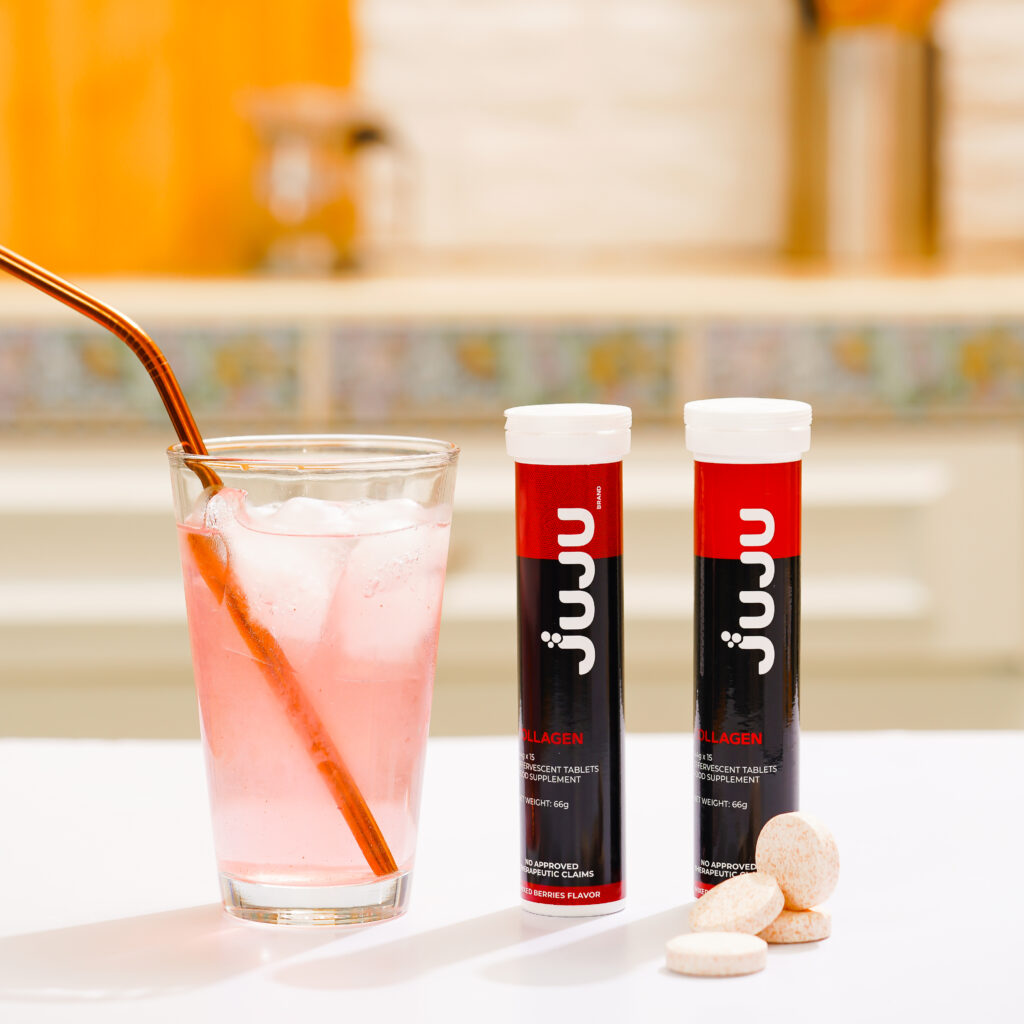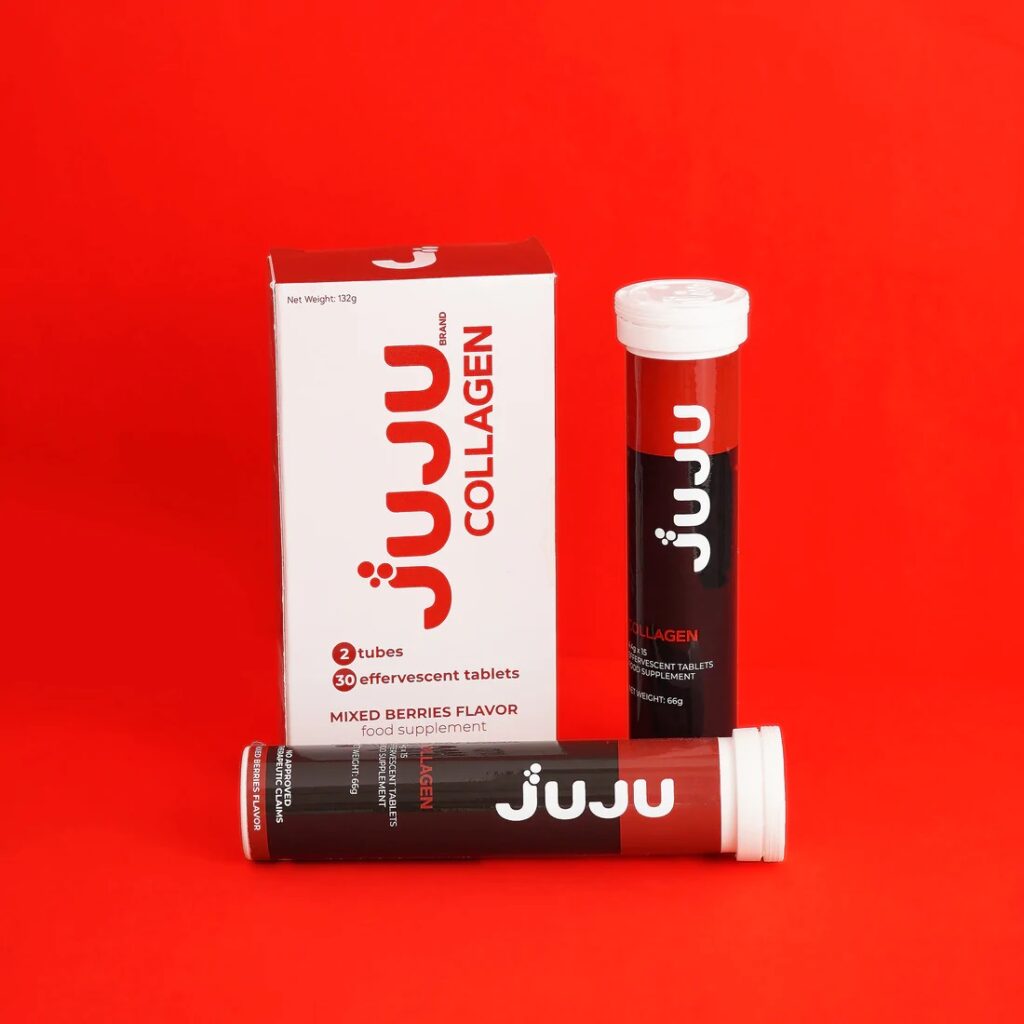The importance of vitamin C cannot be overstated. Yes, it is necessary to drink it. It aids in developing the foundation of our bodies and improves nutrition absorption.
Our bodies can’t function without vitamin C. Vitamin C, ascorbic acid, vitamin E, and beta-carotene are all members of the vitamin C family. In the 1930s, a Hungarian physician named Albert Szent Györgyi made the first discovery. While working with citrous fruits, he accidentally isolated a chemical he dubbed “hexuronic acid,” or ascorbic acid for short.
You probably already know that vitamin C is good for your skin. The collagen that vitamin C helps you create gives your skin a healthy, glowing appearance. Many do not understand why Vitamin C consumption is so important. Let’s discuss the importance of consuming Vitamin C on a daily basis and why you should be drinking it to improve your skin’s appearance.
Vitamin C, also called ascorbic acid or sodium ascorbate, is a nutrient necessary for the formation of blood vessels, cartilage, muscle, and collagen in bones. Healing is aided by vitamin C’s presence in your body. This property allows it to dissolve in water and reach the body’s tissues, but it is poorly stored, necessitating regular ingestion via food or supplements.
As a potent antioxidant, vitamin C can prevent cell damage caused by free radicals and aid in the healing of wounds. It’s required for the production of collagen, a protein found in connective tissue that plays an important role in the health of many physiological systems, including the neurological, immune, bone, cartilages, and cardiovascular system. Numerous hormones and chemical messengers in the brain and nerves rely on this vitamin.
Because of its antioxidant properties, vitamin C can help protect your cells from the damage caused by free radicals, which are molecules created when your body breaks down food or is exposed to harmful environmental factors like tobacco smoke and radiation from the sun, X-rays, and other sources. Heart disease, cancer, and other disorders may all have a connection to free radicals. Getting enough vitamin C also aids iron storage and absorption. Vitamin C’s antioxidant properties have drawn attention since free radical molecules, in excess, can cause damage to cells.
Vitamin C helps the immune system by making white blood cells work harder. “There is a lot of buzz about vitamin C, and for good reason. It’s possible that elevated vitamin C levels in the blood are the best nutritional indicator of general health “Professor Mark Moyad, MD, MPH, who led the study at the University of Michigan, made this claim. The more research is done on vitamin C, the more we learn about all the different ways it helps safeguard our health, such as our cardiovascular system, our cancer and stroke prevention, our eyes, and our immunity, and our ability to live longer.
Vitamin C is a nutrient that is essential for good health, but your body can’t make on its own. Citrus fruit, berries, potatoes, tomatoes, peppers, cabbage, Brussels sprouts, broccoli, and spinach all contain vitamin C. You can also take vitamin C orally, and you can find it in capsules and chewable tablets.
The antioxidant properties of vitamin C are probably already well known, but you may not be aware of its skin-friendly effects. Personally, we find great benefit in taking this vitamin, and we make it a habit to consume a vitamin C-rich beverage daily or even use products with this kind of skincare ingredients . In this article we will tell you the top reasons why you should be utilizing a drink that is packed with of Vitamin C for the benefits for skin.

Skin health is improved by vitamin C because it stimulates the creation of collagen, which forms a protective barrier against the elements. It protects the skin from losing moisture and from free radicals that might cause harm. Sun-related wrinkles can be avoided with the use of vitamin C. Vitamin C also promotes skin growth and regeneration. Some additional skin advantages of vitamin C are listed below.
Vitamin C taken orally, particularly when combined with dose of vitamin E, may protect against sunburn, signs of aging , skin disease, dark circles, and its effects. Vitamin C in the diet may also be protective against sun damage or sun exposure in layer of the skin, though more study is needed to determine the full scope of this benefit. Ascorbic acid is quickly absorbed at an acidic pH, suggesting that topical administration of vitamin C is an excellent way for delivering ascorbic acid to the skin.
Data reveal that vitamin C is most efficient in preventing against damage generated by UV light and also has utility in the treatment of photodamage and/or skin wrinkling, despite variations in vitamin C formulations and study design. Research is needed to understand the exact effect of vitamin C on dry skin and wound healing, but preliminary findings suggest it helps with both. Finally, supplementing with vitamin C works best when taken with other micronutrients like vitamin E and zinc.
Vitamin C has many critical biological roles that are directly related to skin health, which is why it is found in such high concentrations in the skin. While collagen formation and antioxidant protection are the best-studied vitamin C functions to date, evidence is mounting for their involvement in a wide range of other processes.
Exposure to ultraviolet (UV) light is mitigated by vitamin C. Sunscreens block both UVA and UVB rays, while vitamin C does not. Instead, the vitamin C’s antioxidant activity shields the skin from the free radical damage caused by UV light.
Higher levels of vitamin C transport proteins in keratinocytes after UV exposure are consistent with a higher requirement for vitamin C uptake to achieve appropriate protection.
The Minimal Erythemal Dose (MED), a measurement of skin photoprotection against UV light, was not significantly increased by oral vitamin C supplementation alone in two human investigations. In essence, the available findings imply that vitamin C supplementation alone does not offer significant antioxidant protection against UV irradiation. Vitamin C and vitamin E, when taken together, have been shown in several trials to raise MED and reduce offer some unique blood flow to damaged skin when taken orally . Therefore, it may be necessary for interactions between two antioxidant vitamins to obtain UV protection via food.
Vitamin C, alone or in combination with other chemicals, applied topically may provide more potent photoprotection than taking the vitamin by mouth. One mouse study found that ascorbic acid applied topically prevented skin wrinkles and cancers from developing after prolonged exposure to high doses of UVB. Vitamin C’s anti-oxidant properties mitigated the sunburn, erythema response, and DNA damage caused by UVA radiation in pig models when applied topically. Vitamin C and vitamin E are more efficient in reducing photodamage when applied topically together than when applied alone. In particular, this antioxidant vitamin combination mitigated the UV-induced suppression of the immune system, enhanced mitochondrial electron transport, and reduced cellular damage.
Vitamin C in the diet has been shown to reduce the likelihood of developing dry skin. Findings may indicate that ascorbic acid influences trans-epidermal water loss (TEWL). The addition of vitamin C to cell culture models enhances the synthesis of barrier lipids, which would create a functional stratum corneum with minimal water permeability. Using vitamin C on the surface of the skin has been linked to smoother skin in one human study. A different study, however, found that topical application of vitamin C increased TEWL. Therefore, vitamin C’s impact on dry skin is unclear.
The epidermis (the outermost layer of skin) becomes itchy and scaly and ages prematurely if it does not receive enough moisture. Maintaining hydrated skin is essential to looking young and beautiful.
Fortunately, vitamin C has been shown in clinical studies to aid water retention in the skin, avoiding dryness and oiliness. Scientists discovered that people whose diets were supplemented with vitamin C had significantly and persistently better skin in terms of moisture, elasticity, and roughness.
Both photodamage (photoaging) and intrinsic ageing are caused by the accumulation of oxidative damage to proteins, which in turn can cause alterations in skin structure. Vitamin C not only protects cells from damage, but it also controls the production of collagen, an essential structural protein. Vitamin C has been extensively studied for its function in collagen hydroxylation. Collagen hydroxylation is essential for extracellular stability and epidermal support.
Overexposure to the sun’s ultraviolet (UV) radiation and environmental pressures are typical causes of hyperpigmentation, a disorder defined by the development of darker spots on the skin. Although hyperpigmentation is innocuous, it might make you look older than you are.
The antioxidant effects of vitamin C were found to be particularly useful in avoiding the appearance of UV damage and blemishes, as well as promoting general skin health.
Hyperpigmentation can be avoided thanks to vitamin C’s role in suppressing tyrosinase production, an enzyme involved in melanin production.
Vitamin C has no effect on normal skin coloration; it will not lighten normal dark skin pigmentation, but it will lighten abnormal melanin deposits due to sun damage. Using this ingredient also reduces redness.
Vitamin C increases collagen gene expression and works as a co-factor for the proline and lysine hydroxylases responsible for stabilising the tertiary structure of collagen molecules. Vitamin C has countless uses, but here are just a few: it aids in the formation of collagen and elastin, lessens inflammation, promotes glowing skin, and cuts down on acne by enhancing the skin’s natural ability to shed dead cells.
Collagen production in the body cannot happen without vitamin C. Collagen is essential for the maintenance of youthful, supple skin as well as the structure of hair, muscles, and tendons. 3 Collagen production decreases with ageing, which can cause skin laxity.
Vitamin C, when administered topically, stimulates the body’s natural production of collagen and elastin, two proteins crucial to maintaining the skin’s elasticity and plumpness. Premature skin aging can be delayed by topical vitamin C, which also helps restore the skin’s youthful, smooth appearance resulting to improved skin .
For the most part, vitamin C consumption is probably risk-free. Vitamin C may induce adverse reactions in certain persons, specially the people with sensitive skin, including gastrointestinal distress, vomiting, heartburn, and headache. Higher doses raise the possibility of experiencing these negative effects. In addition to increasing the risk of kidney stones and severe diarrhoea, exceeding the recommended daily dose of 2,000 milligrammes is also potentially dangerous. Those who already have kidney stones are more likely to form more if they take more than 1000 mg each day. It could irritate and tingle the skin if administered topically as a serum or ointment.
Consuming foods rich in vitamin C typically does not lead to these negative effects. Extreme vitamin C intake is the sole known cause of these symptoms.
More than 2,000 milligrammes (mg) at once is likely to cause stomach issues. Thus, a UL of 2,000 mg per day has been set as the maximum safe intake level. If you find that taking vitamin C pills causes stomach upset, you can reduce your daily intake or skip them completely.
While vitamin C is an important nutrient, your body doesn’t actually make it — so it’s important to make sure you’re getting enough vitamin C from your diet. The amount you need depends on your age and gender, but, in general, adults should aim to get between 65 to 90 mg of vitamin C per day.
While it can be applied daily, start with 3-4 times a week if you like to play it safe and work your way up. Although vitamin C is most commonly used in the morning, there is a place for it in your PM skincare routine too.
Using vitamin C for skin care can boost collagen production, which can help reduce the appearance of fine lines, wrinkles, and scars. It can also improve the appearance of photodamaged skin.
Melanin is the pigment responsible for skin color. By inhibiting melanin production, vitamin C can help fade dark spots and hyperpigmentation. It may also help brighten your skin’s appearance.
4 weeks is usually the golden rule for beginning to see changes – it’s allowed your skin to go through at least one renewal cycle with this skin-changing ingredient. At this point, your skin should have a subtle change in radiance, which is something you’ll notice will stick around as long as you keep using Vitamin C.
As we already know, vitamin C plays a crucial role in keeping our bodies healthy. Vitamin C protects our body from bacterial and viral infections by creating anti-oxidants, so getting more of it through diet and supplements is crucial. Including fruits and vegetables in your diet is also important.
Now that we know vitamin C is crucial to our health, it’s crucial that we eat a well-rounded diet. Vitamin C’s anti-aging, anti-wrinkle, water-retaining, and collagen-producing properties are well established. Many modern methods exist for delaying the onset of ageing, but eating foods high in vitamin C is by far the most effective and natural approach.



© 2023, Juju Health & Wellness Blog Powered by WordPress